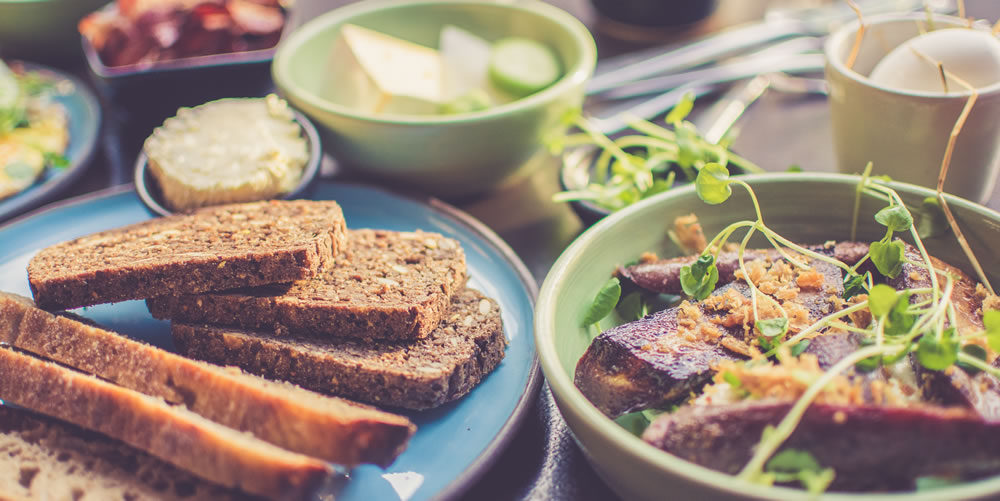Nutrition 101 for Caregivers
Giving support and nourishment to your loved one during cancer

Contributed by Nancy Burke, R.D., Danielle Karsies, M.S., R.D., and Melissa Shannon-Hagen, R.D., CSO, U-M Rogel Cancer Center Symptom Management and Supportive Care Program
One important challenge for cancer caregivers is providing the fuel their loved ones need to fight the disease. Maintaining weight can improve tolerance to treatment, speed up recovery time and possibly result in better outcomes.
Here are some tips:
This is not the time for a major diet change
Becoming vegetarian or loading up on fruits and vegetables could be beneficial, but only if your loved one is interested in eating and tolerating food well. Remember that symptoms of treatment, or in some cases the cancer itself, can make high fiber diets unbearable. Be willing to modify if nausea, diarrhea or poor appetite arise.
Try not to get frustrated
Your loved one may not have the same interest in eating as before. Offer food often and provide choices. Make a pact to avoid force feeding or nagging. Instead, have your loved one be willing to take at least a few bites at all meals. A routine of structured meal and snack times can help.
Spruce up the meal
If your loved one gets no pleasure from eating due to lack of taste, find another way to help him or her enjoy meals. Plan meals with family and friends for company and conversation. Listen to music, read or eat in front of the TV. Distraction causes people to eat more than they normally would.
Play to their palate or tolerance
Ask what foods taste best and use it to your advantage. If salty, sour or sweet foods are preferred, find recipes with those flavors. Cookbooks for people with cancer often contain recipes geared toward specific symptoms. Trying new foods can also be helpful since there are no preconceived notions of taste.
Go Shopping!
Keep fast and easy snacks on hand. Make extra at meals to have leftovers as a snack.
Don't forget to take care of yourself
Carving out time to relax and refresh will ensure you stay upbeat. Do not skip meals or eat comfort foods in place of healthy, energizing foods.
Call Cancer Center Nutrition Services at 877-907-0859 for an appointment with a registered dietitian.
Read the Spring, 2017 issue of Thrive
